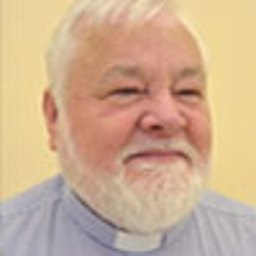Where is God? It sounds like a child’s question. One of the earliest answers we learned was simple, certain, reliable: God is in heaven, smiling down at us, taking care of us.
But it’s more than just a child’s question. People ask it in times of crisis. Where is God after a school shooting? After 9/11? As people die in floods and earthquakes and tsunamis? As warlords and terrorists torture people and enlist child soldiers? In the middle of this brutal war in Ukraine? When people are murdered for the crime of being different — being black, or indigenous, or gay, or transgender, or a different faith, or (in some cultures) for being a woman?
People ask the question in personal crises—an unexpected diagnosis; the death of a loved one; a child lost to addiction; the loss of a job; the prospect of homelessness; a pandemic which leaves us feeling lonely and isolated; in times which stretch us to the limit.
Where is God in this mess?
The old simple, certain, and reliable answer of “God–in–Heaven” no longer satisfies, and people have simply stopped asking the question. They conclude that God is an ancient myth which is no longer relevant.
Yet this theological question refuses to go away. It continues to surface in a chaotic globe.
Some religious leaders hang on to the old answers with a dogged determination. They claim that our heavenly God is judging an unfaithful world. Of course, it’s quite remarkable how God seems to bless their own personal, particular prejudices, from abortion–on–demand to the “gay agenda” to the breakdown of the family.
Again, many simply shake their heads and walk away from such angry rhetoric.
But the question won’t go away. This consequential question continues to haunt us.
The old answers arose in an ancient understanding of a three–story universe with God at the top in Heaven, the demons dwelling at the bottom in Hell, and we humans muddling about in the middle level on Earth.
In such a universe, people agreed that God was unimaginably distant, and we needed mediators to connect with that distant God. For Christians, mediators included Jesus, Mary, the saints, the Church, prophets, preachers, priests, sacraments, dogma, rules, and rituals. They were supposed to teach us to learn to do what is good, right, and holy.
But science has shown us a different universe. We can now see farther than we ever could before. People went into space and claimed not to see God. Life and the universe are much more complex than we ever had imagined.
We need answers for today, where it no longer makes sense to think of divinity living “up there.” Indeed, there is no “up there” in this beautiful blue ball spinning in the vastness of space.
Without new answers, people leave conventional forms of religion. But they haven’t given up on God. Polls show that people believe in God and identify as “spiritual but not religious.” What they are rejecting is a particular conception of divinity.
God is not up there in some mythological heaven. Rather, God is right here. With us. In us. In our neighbour. In acts of love and compassion. In moments of utter stillness. In times of loud celebration and laughter. In communities seeking to do good. In acts of inclusion and welcome. In sunsets and seashores and gardens, in good food and good company, when we eat and drink and make love.
Some call it a “revolution of divine nearness.” I don’t think it is a revolution. Rather, we are doing what theology has always done — finding new answers to old questions and seeking new ways of describing the indescribable.
Not a distant God, but a more intimate presence, in which millions experience God as more personal and accessible, a God who is robustly present in the chaos and confusion all around us. This Spirit invites us to save the planet and make peace with the whole human family. This One invites us to partnership in creating a hope–filled future.



